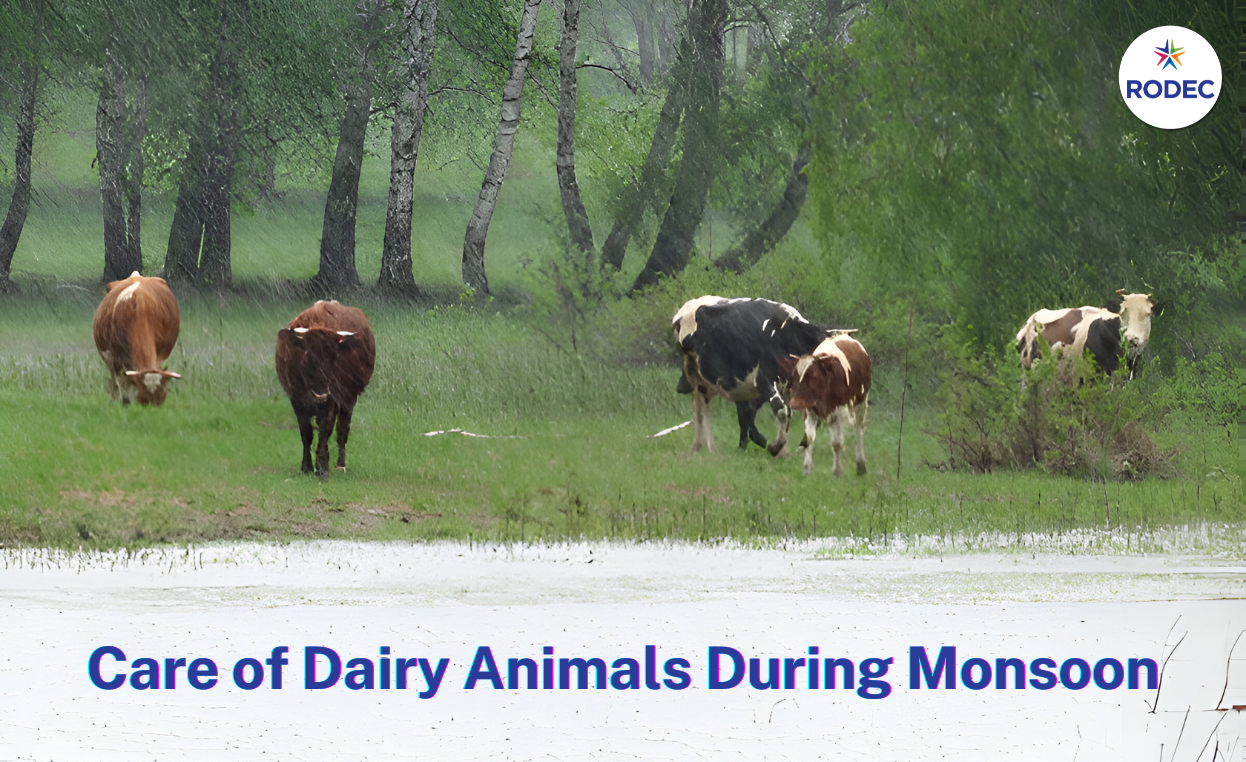
Blog |
July 08, 2024
Monsoon in India brings relief from heat but all kinds of inconveniences of water-related issues like bacterial infections, viral infections, and management issues. Just like we take care of ourselves during the monsoon it is also important to care for our dairy animals as well. Rainy seasons can affect the productivity of the animals as the temperature changes from extremely hot to wet conditions. During monsoon, animals are susceptible to various issues:
- Water contamination
- Ectoparasite infestation
- Endoparasite infestation
- Bacterial Infection, and others
Here are some preventive measures that must be taken during monsoon to prevent the above problems:
- Deworming: Worm infestation like liver fluke, lung worm, tapeworm and roundworm is a major problem in monsoon for dairy animals. It is important to deworm your animals before, during and after the monsoon with a complete dewormer like Exifluke DS+.
- Vaccination: Animals should be vaccinated before the monsoon for infectious diseases like Hemorrhagic septicemia (HS), Foot and Mouth disease (FMD).
- Ectoparasite Infestation: Monsoon is the season of ticks and flies in India as they multiply rapidly in humid weather. Ticks suck the blood of animals and induce anaemia. Flies on the other hand can cause a lot of nuisance to the animal which in turn reduces the productivity of the animals. Ectoparasiticides like Tiknash and Zusafa in case of ectoparasite infestation.
- Drinking water: Provide plenty of fresh water for drinking for the cows during the rainy season. Ensure the water is potable, clean and easily available for the cattle. During monsoon water tends to get mixed with sand or mud; ensure to constantly filter the water for cows so that they don't consume muddy water.
- Grazing: Do not leave animals for grazing during the rainy season as the grass grown in the rainy season contains high amounts of water and fibre which can affect the degree of milk.
- Feed: To prevent scarcity of fodder, prepare feed like hay and silage for the animals. The green fodder should be dried before feeding the animal during the rainy season. Store the animal feed in a dry and hygienic place. Excessive moisture in the feed can lead to the formation of mould which can be harmful for the animal to consume.
- Animal Sheds: Animal sheds should be repaired and fixed for any leakage before the monsoon. Allow proper ventilation in the animal sheds. The roof of an animal's shed should be leak-proof and clean. The floor should not be slippery and should be thoroughly cleaned. Bedding material should be dry as wet material can be uncomfortable for the cows.
- Bacterial Infection: Mastitis tends to increase during the rainy season as the immunity of the dairy animal is reduced during this time. This makes the cow increasingly susceptible to bacterial infections like Mastitis. To avoid this, maintain cleanliness in the shed. Regularly clean leftover feed, cow dung and urine to prevent animals from bacterial infections like Mastitis.
- Avoid injuries: Wounds or cut injuries are to be dressed with suitable ointment to prevent severe infection and further complication
- Monitor Stress: Constantly monitor the health of the animals for stress as they are extremely susceptible to stress in monsoon. Avoid transportation or undernutrition during monsoon to prevent long-term stress in dairy animals.
The above methods are important to implement for maintaining the productivity of dairy animals and give economic benefits to dairy farmers in harsh monsoon conditions.


